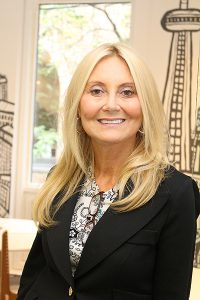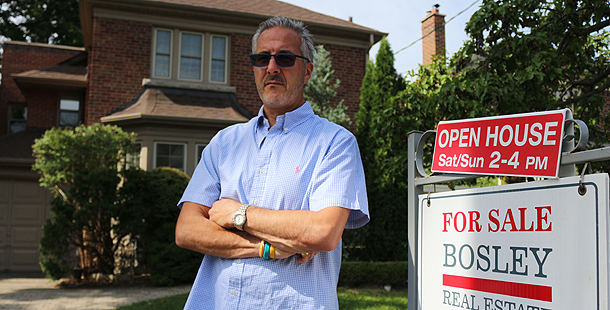Growth seen in Leaside, shift in demographics noted in Forest Hill

NEIGHBOURHOOD WATCHER: Realtor Patrick Rocca has seen growth in foreign buyers in Leaside but it’s great for sellers in the area, he says.
Don’t expect to see a British Columbia-inspired real estate tax in Toronto any time soon.
B.C. premier Christy Clark and her government introduced a 15-percent levy on foreign buyers Aug. 2, in an effort to make Vancouver’s housing market more affordable, and to cool down the seller’s market.
A lot of the issues facing the West Coast, including the lack of regulations facing realtors, as well as dual agency — the act of an agent representing both seller and buyer — are not common practice in Toronto.
Which prompts the question: could this city see a similar tax imposed on foreign buyers with housing prices soaring?
Not likely, if you ask Toronto Real Estate Board past president Mark McLean. The Bosley Real Estate broker said the reason for growth is bidding wars and a desire to move to the city.
“I don’t feel foreign investment is a significant threat to our real estate market,” he said, hinting that speculation of house prices going up due to foreign investment is not rooted in evidence.
That said, the Toronto Real Estate Board is going to start collecting data on foreign buyers as it’s a statistic that’s never been followed before.
With the changes made out west, foreign buyer rates are certainly a metric the board will have to keep track of since foreign buyers will be looking for investment opportunities elsewhere.
In August, the Board reported a 23.5 percent increase in sales from the previous year. Any thought of a tax would drop prices and end up having a trickle down effect, McLean said. But in his experience, 90 to 95 percent of the buyers in the city are local, and the reason for soaring house prices is due to not being enough infill.
Midtown brokers Patrick Rocca, who covers Leaside and Davisville, and Catherine Himelfarb Borden, who represents Forest Hill, Cedarvale and the Annex, have seen some growth in foreign purchasing, but not enough to cause a raucous over.
Rocca is candid when he spoke of Leaside’s hot market. A home that went for $1.2 million last year could fetch the seller $1.5 million now.
Part of that, he said, is due to bidding wars, and in 50 percent of the cases, foreign buyers are involved, and are willing to pay top dollar. But the motive for each buyer varies — some want to “park their money” and others want a home.

CHANGE IN DEMOGRAPHICS: Forest Hill Real Estate branch manager, Catherine Himelfarb Borden does not see foreign buyers in Forest Hill. But she does see a changing demographic.
“The downside is the normal buyer who is coming from a small semi looking to move up, or someone who is trying to get into the market,” Rocca said of house price.
When it comes to Forest Hill, Himelfarb Borden has noticed a change in demographic. Sure, there may be more families from India, China, but they’re second, third generation Canadians, she said, and it’s great for the neighbourhood.
She attributed the B.C. government’s move to tax foreign buyers as a means to cut out the “hanky panky” that was going on among the real estate agents.
In Toronto, realtors are governed by both the Real Estate Council of Ontario and the Ministry of Consumer Relations.
The council, or RECO for short, is a “strict regulatory organization” that oversees realtors.
As for the hot market, Himelfarb Borden doesn’t see it cooling its jets just yet.
“I don’t see anything changing in the future because there is a growth in listings and there are still a tremendous amount of buyers out there,” she said.
Rocca doesn’t want to see it simmer either.
“If you’re selling it’s a beautiful thing, but if you’re buying, it poses a problem,” he said.

